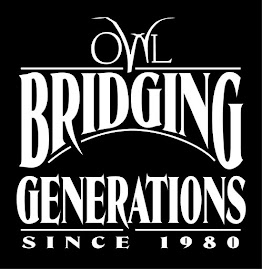Tuesday, December 23, 2008
A Holiday Perspective
May I wish for you and your family a very happy holiday. Where I live the ground and trees have been covered with white snow, slowing down traffic and making us all a little frustrated or in the holiday mood – depending on your perspective. In honor of the holiday season, I want to talk a little about perspective. All of us with investments have lost a great deal of money in the past several months. For some who are retired, that may be what they are living on. For others of us, those investments were what we hoped to retire on.
But remember those who don’t have investments; those who didn’t lose anything because they had nothing to lose. Those are the people, young and old, who will be worse off in this economy because they will lose their job or because the government program they relied on is now cutting benefits. They were never fortunate enough to have something to fall back on.
Those of us who lost much of our savings are feeling much poorer and are probably a little afraid of what will happen next. But this is the time of year to look at the glass and ask if it is half empty or half full. For those of us with half full glasses, now is the time to look to the charities that we support, and continue to support them. Although we feel poorer, we must ask ourselves whether we really are poor, for there is a big difference between feeling poor and being poor.
In this holiday season, let us remember those who are really poor.
Ellen A. Bruce
President, OWL Board of Directors
Wednesday, December 10, 2008
Aging in Place?
Aging in Place?
Many of us live in the house we raised a family or our parents still live in the house in which we were raised. The rooms that once held Legos are now guest rooms or dens. We may love the house for its memories or we may feel it is too big for the occasional visits of family and friends. Should we move?
I have often pondered the phrase “Aging in Place” which is so often held up as the goal for housing policy and long-term care policy for older persons. Does it make any sense?
As we get older our needs change and it seems that our housing should also change. We probably need less space and would appreciate less responsibility for the upkeep. The models of independent living that offer meals and relief from other burdens such as finding repair people have been very popular among those who have the financial means to afford them. They are also popular with the children who worry about their parents’ wellbeing.
For people whose houses were in the suburbs or rural areas, the independent living model can provide transportation when driving becomes unsafe. But perhaps, most importantly, living in these communities can provide an easily accessible social network. As we age, we lose not only some of our strength and stamina but also our friends and often our spouse, leaving us much more socially isolated and often lonely.
Aging in place sounds good but may not be the best choice of many of us. As we change and our lives change, it makes sense that our housing should also change. Certainly we do not want to be warehoused in an institution but there should be many other options between staying put and moving to an institution. The continuing care communities are a good start but they also pose problems. They are expensive and not available to most seniors. For those seniors who can afford them, they are viewed as a place you move to when you no longer want to cook or drive or your children are afraid of you alone in a big house. Why not make them more flexible so that you don’t have to have the meals if you still like to cook? Why not make them attractive to young seniors as well as older ones? Why not build affordable units with government support?
Some of these ideas are already in place but we need many more innovations which will encourage those in their sixties and seventies to downsize when they can do it themselves in a manner that they choose. Planning ahead is part of the puzzle but having the options is also an important piece.
Ellen A. Bruce
President






